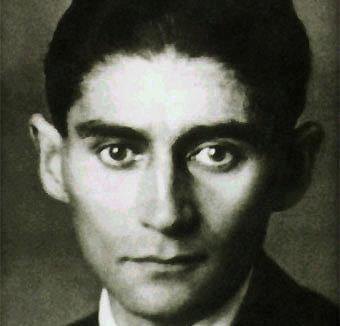"Each of these stages, externally seeming to be a reversed, failed, metamorphosis, is inwardly, if so experienced, a well tested and individualized, source of courage".
Kafka's Creative Renunciation
From The Event in Science, History, Philosophy & Art, Chapter 4, The Event in Art, second stage of artistic becoming, Initiation Language, p. 180.

"Each of these stages, externally seeming to be a reversed, failed, metamorphosis, is inwardly, if so experienced, a well tested and individualized, source of courage. But this is something we have to experience with Kafka, as this is true for modern literature at its best. It is up to us to de-actualize it and to construct a line of flight, lay a plane of immanence, and actualize our own virtual becoming on this plane. If we do so, it will be inwardly felt as full of creative, positive intensity. Kafka’s writing is altogether free from any trace of decadence; it is inwardly robust, healthy, and even joyful; his is a powerful new initiation language, and this is the reason why he sees so clearly through the modern mind and its delusions.
'Precisely because of this Kafka reached the highest level of resignation of power and prioritizing weakness instead of power; this is one of the fascinating elements of his personality and writing... in the hands of Kafka, weakness became the deepest and most penetrating critique of power'. (Dan Meron)
But conversely, we must add: this weakness is far more importantly a will to virtual power, rather than a mere critique of external power. As initiation language, it feeds on death, lament, and helplessness, eschews complacent, pessimistic humanism, devours them, and increases its creative becoming".

 עברית
עברית